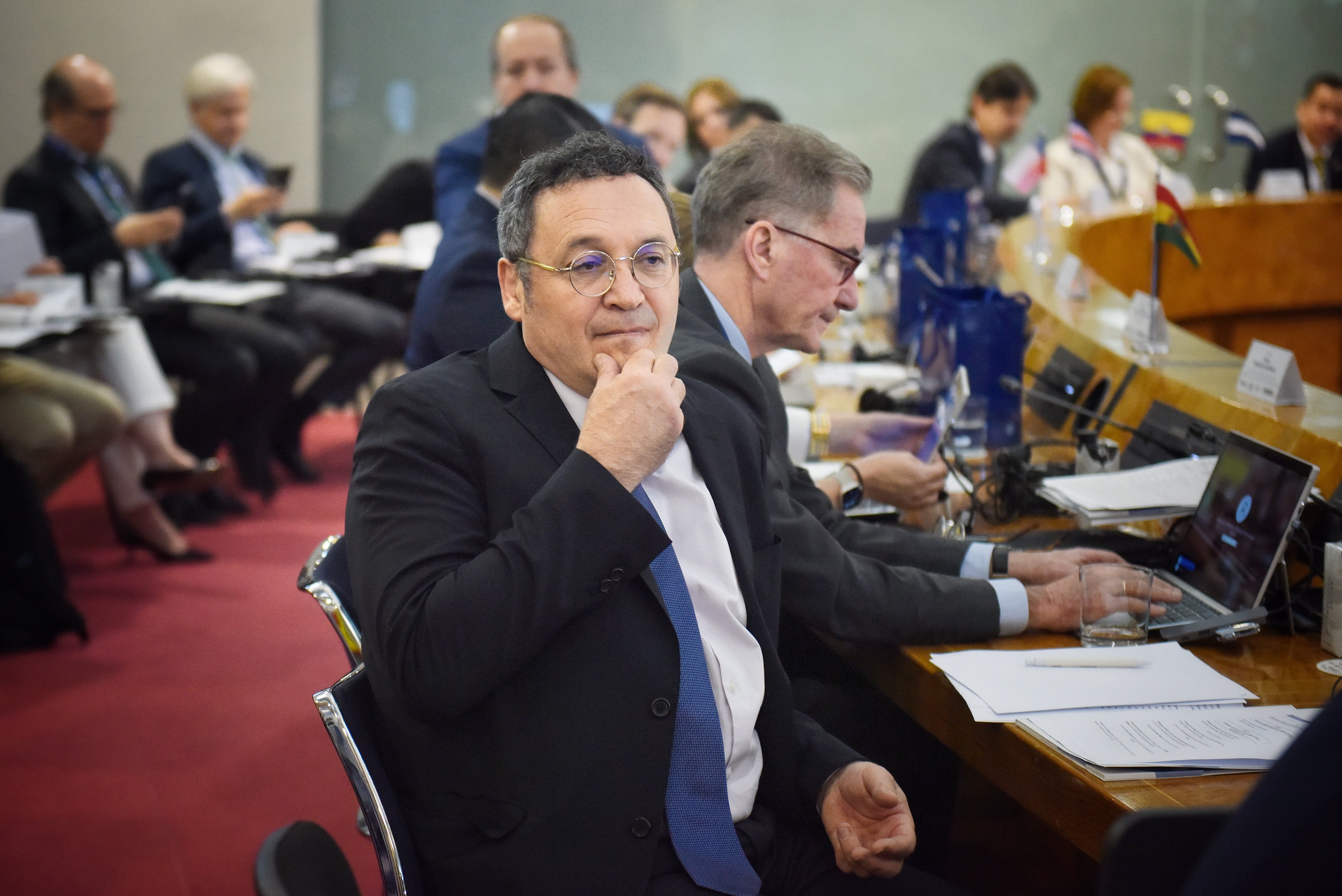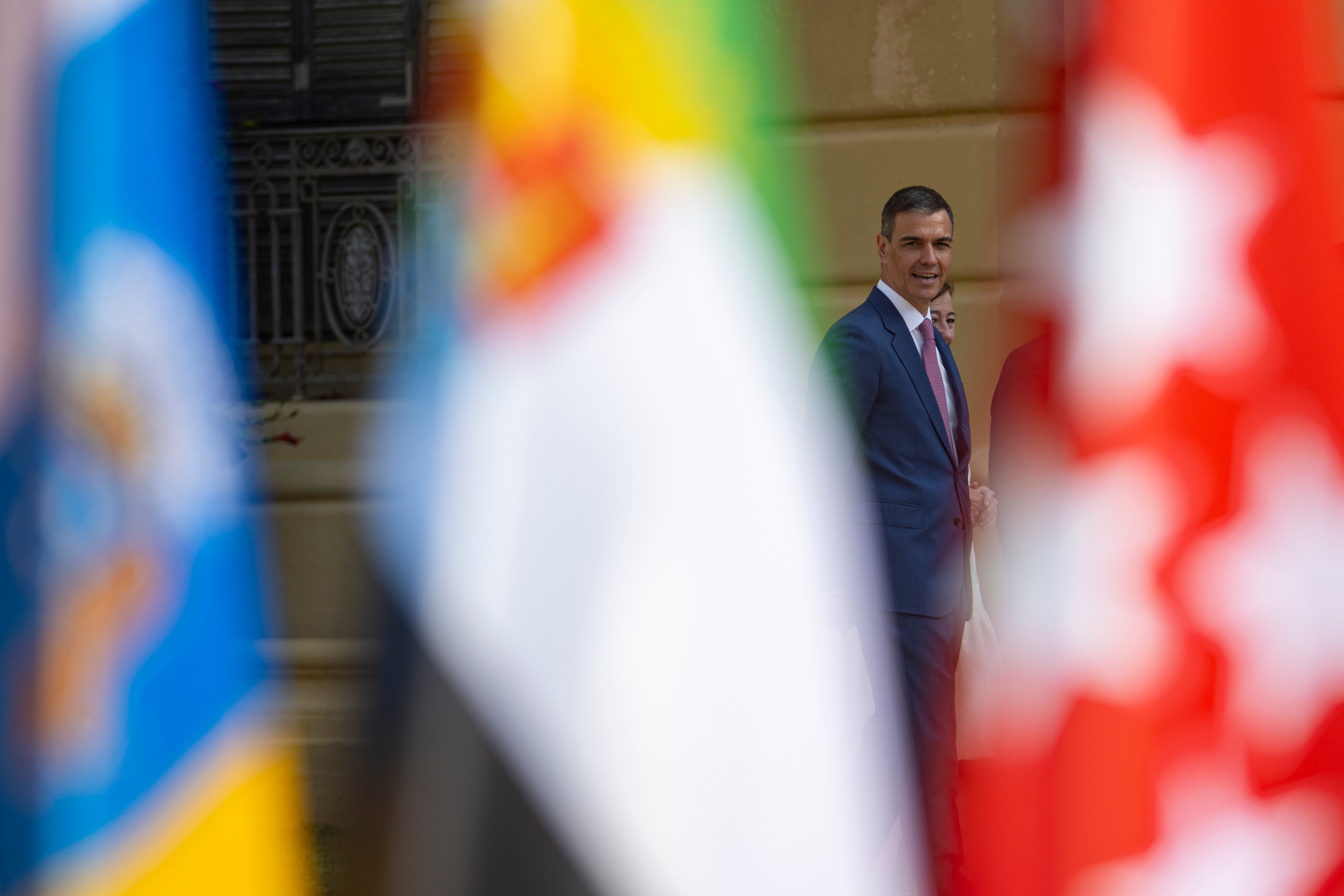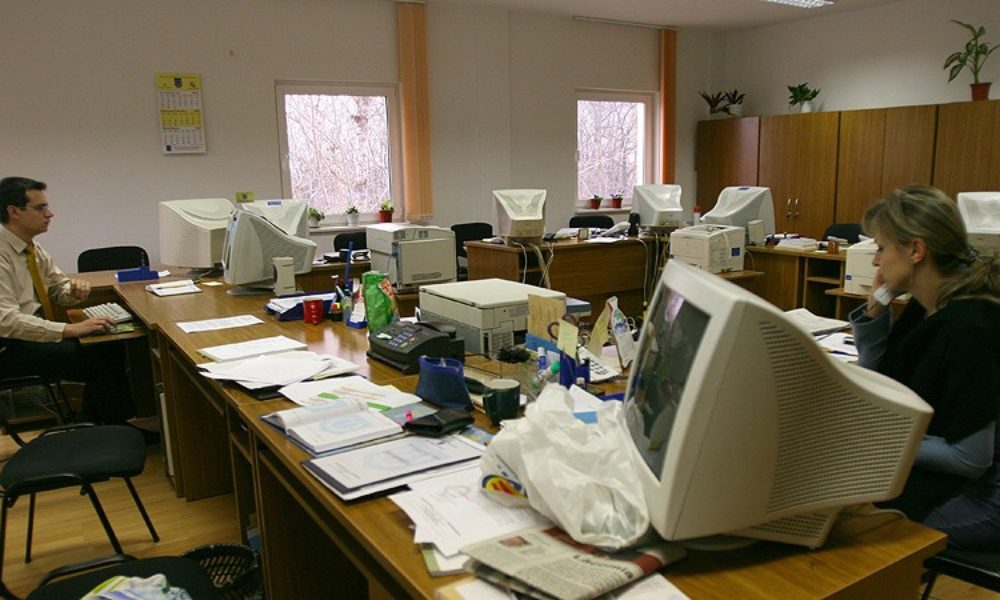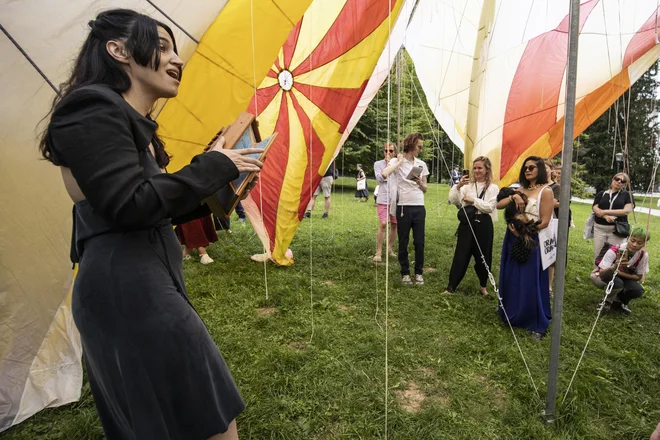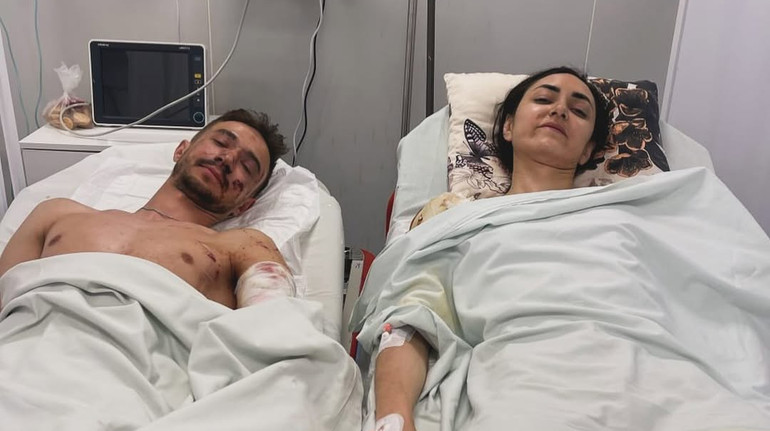The Government gives the green light to the Truth Commission on the crimes of Franco | Spain
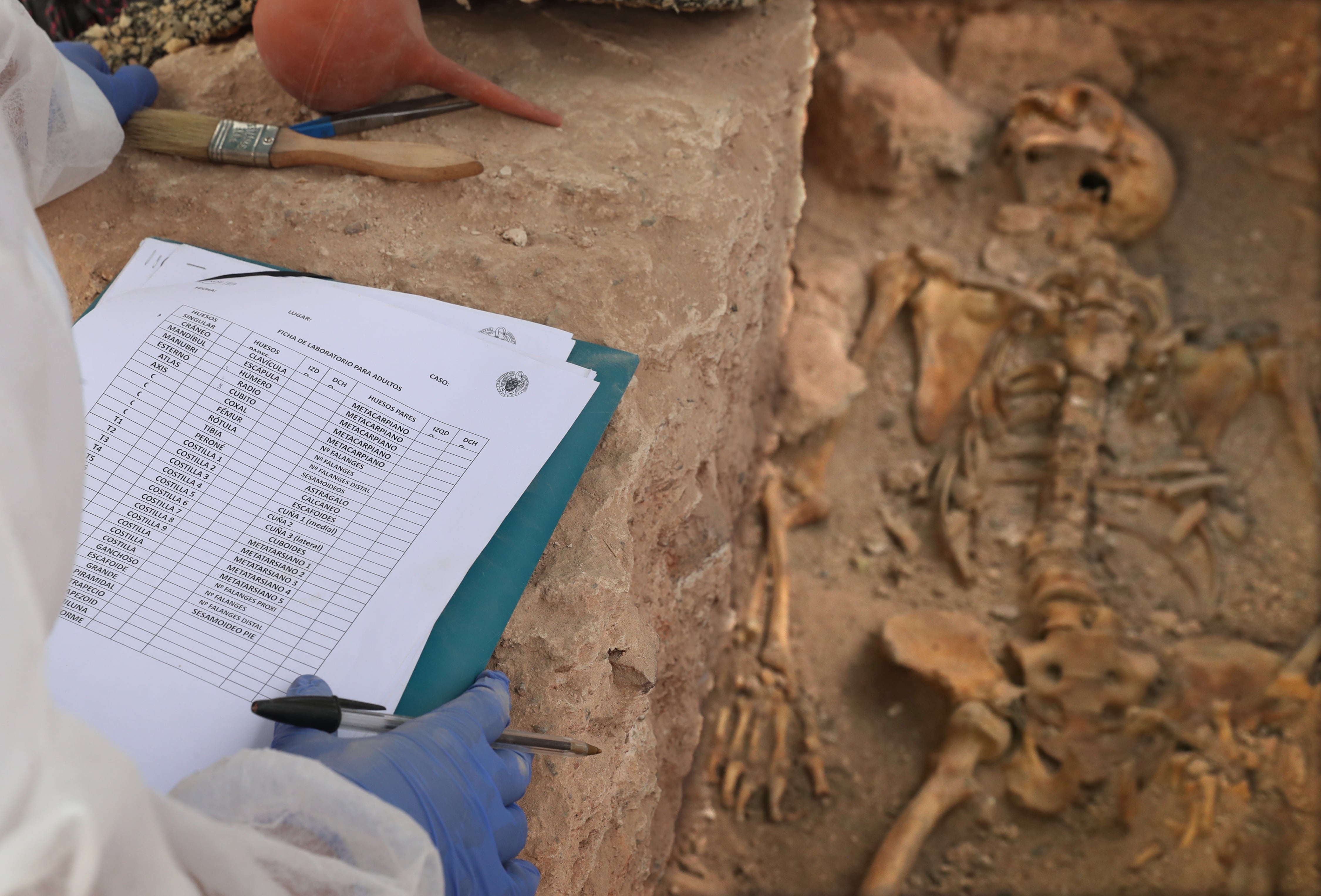
The Government has announced that this summer a kind of Truth Commission will be activated, that is, the group of experts who will analyze the existing documentation on serious human rights violations committed during the civil war and the Franco dictatorship. The first step, according to Fernando Martínez, Secretary of State for Democratic Memory on Monday, will be the approval, in the next Council of Ministers or the following, of the so -called Democratic Memory Council, which will have 32 members. October 2022 It already anticipated it in its article 57, but it is one of the aspects of the norm that has suffered delay in its development, among other reasons, by the tight electoral calendar of 2023 and 2024. The Council is an organ “Consultative Collegiate for the Participation of the Memorial Entities” and has among its functions that of constituting that commission of the truth that will be “state, academic, non -judicial and independent”.
The main objective of this commission is to systematize the existing, fragmented and dispersed information on human rights violations committed during the civil war and the Franco dictatorship, consulting files and collecting testimonies to contribute, among other matters, to the elaboration of a Official and state census of victims, As the law also provides in its article 9. It will have ten members, « historians, academic world specialists and human rights experts of recognized prestige, » according to the Secretary of State for Democratic Memory. They will propose an orderly research plan and prepare a report of conclusions that serve « for the repair of the victims and to prevent such facts from repeating themselves in the future. » That is the objective of the different truth commissions that have been held in the world, in those countries, such as Spain, with a traumatic past.
Martínez has advanced the plan to constitute the Democratic Memory Council for a conference held on Monday at the Congress of Deputies on the occasion of the International Day of the Right to Truth and organized by the Platform for the Commission of Truth on the crimes of Francoism and the International Foundation Baltasar Garzón. Memorialist associations from different territories, representatives of the parliamentary groups of the PSOE, Sumar and ERC and the Prosecutor of the Democratic Memory Room, participated in the event, Dolores Delgado. During the deputies, Enrique de Santiago, of Sumar, a party integrated into the coalition government, has criticized the RESIGNIFICATION PLAN OF THE CULEGAMUROS VALLEY agreed between the Minister of Presidency and Justice, Félix Bolaños, and the Holy See and for which the Benedictine community may finally remain in place. « We know that the balances are very complicated, but it does not seem that this sect will change its orientation because they change to the prior. We are not happy with the resignification process, » he settled. The spokesman for the memory of the Socialist Group in Congress, Raúl Díaz Marín, pointed out – claiming that he got “in a garden” – that he could “share” with De Santiago the need to “disagree” the valley – which is not provided for in the agreement – although he highlighted the importance of the importance of the Ideas contest To give a democratic look to the whole, with a museum or interpretation center that serves to explain the civil war and the dictatorship to the new generations. With that, he predicted, the « fascists who go up there » will be taken away from visiting him.
Access to Justice
For its part, the Prosecutor of the Coordinator of Human Rights and Democratic Memory, Dolores Delgado, presented the tools they have and the difficulties they face to open the door of justice to the victims of the civil war and the dictatorship. He assured that the law of 2022 was a “paradigm change” because, unlike the previous norm, of 2007, dedicates two specific articles to justice: on 28 and 29. On the 28th he established the figure of the prosecutor of the Chamber for the “investigation” of human rights violations in that period and boost the search for missing persons. On 29 he refers for the first time to the “right to investigation” that the State must “guarantee” the victims through “judicial protection in the procedures aimed at obtaining a judicial declaration” on said crimes and promoting “registrations in the Civil Registry of the deaths of the missing persons as a result of the war and the repression exercised in the subsequent dictatorship”.
« It could have been done before, » said Delgado, « with an adequate interpretation of the Spanish Constitution, which in its article 10.2 already says that“ the norms related to fundamental rights and freedom will be interpreted in accordance with the Universal Declaration of Human Rights and international treaties and agreements on the same matters ratified by Spain. ”Said international treaties and international agreements signed by Spain and, therefore, published in the BOE, establish, establish, establish, establish, establish, establish, establish, establish, establish, establish, establish, establish, establish, establish, establish, establish in the BOE. As they have remembered United Nations Rapporteur On numerous occasions, a series of obligations for the State, among others, highlighted the prosecutor, « to guarantee the right to know the truth, in search of the missing persons and to investigate crimes and serious human rights violations: torture, extrajudicial executions, forced disappearances, repression of ideas … ». That interpretation of the Constitution did not materialize and other obstacles arose. « In the criminal field, » Delgado recalled, « there was only one trial, precisely Against the judge who intended to investigate crimes Francoism (In reference to Baltasar Garzón) and the sentence for which he was acquitted was a warning that he could not investigate. We are also finding difficulties in the judicial bodies that archive complaints with the argument that they cannot initiate a criminal procedure if there are no perpetrators (because they have already died), because the facts have prescribed or because they apply the amnesty law of 1977 ″. « But this prosecution, » he added, « does not share that these facts cannot be investigated because according to international treaties, the victims have the right to know the truth, a judicial truth, regardless of whether or not we can sit the victimizer on a bench. We have 45 delegated prosecutors throughout the territory who are very close to the graves and when each of them appears. Any other case.in allusion to those agreed by PP and Vox) They cannot go against state law. ”


